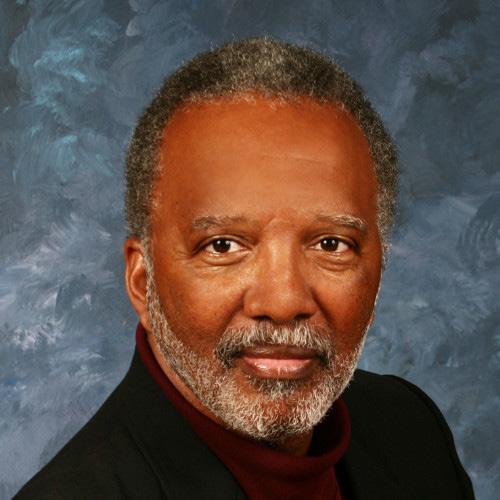
4 minute read
Narrative Storytelling: The Path to Veterans Healing
Contributed by Reuben Keith Green, LCDR, USN, (Ret.)
The Liberty Coast is full of Veterans, from World War II to more recent wars. Some of those Veterans I have known for decades and written a bit about. One, Bill Goss, an author, actor, writer and all-around great guy, I have known since I was nineteen. We met as young Sailors serving in Sigonella, Sicily. Together, we did a StoryCorps interview a few years ago.
Advertisement
Another is Dan Bean: a local attorney, civic booster, retired Judge Advocate General’s Corps officer, former surface warfare officer, Veterans advocate, and recent recipient of an award named for another prominent Veteran— Rear Admiral Kevin Delaney. Bean is someone I’ve known since we were both junior officers serving on our first warships together. I wrote about my own encounters with Delaney, which I’ll never forget.
Yet another is retired Master Chief Petty Officer Daniel Ziparo, my hero. He will downplay his impact on my career if you ask him, but he saved my career when I was a struggling young petty officer working toward completing my bachelor’s degree so that I could apply for a commission. Were it not for him, I likely would not have become an officer in the Navy. Together, we taught leadership to Sailors and officers on the waterfront in Mayport during the 1980s.
I write about all of these Veterans, and many others, in my memoir, “Black Officer, White Navy,” which chronicles my journey from a high school dropout to a surface warfare officer.
Every Veteran has a story. I am interested in all of them. Unfortunately, few write their stories down. I am trying to change that.
After assisting a young white man who had passed out while eating breakfast at a Springfield diner, creating a gash under his eye, I talked to him. He was a former Marine who had served in combat in Afghanistan. Polite, embarrassed, respectful, but clearly troubled, I recommended that he get himself enrolled with the Veterans Administration (VA) and gave him my card. He never called me, but I hope he contacted the VA. He had a story.
The dignified, slow-moving Black man I met in a Murray Hill restaurant, proudly wearing his Korean War Veteran ball cap, decorated with insignia that showed he was once a badass, was being assisted by his loving daughter. Filled with curiosity, I wanted to know his story, but I didn’t have the nerve to ask. I’ve tried to find him since. I am certain he has a lot of stories.
A prominent psychiatrist, Dr. Jonathan Shay, told me that narrative storytelling is the first step toward healing. I didn’t understand that when I wrote my memoir, but I do now.
Dr. Shay spent years working with Vietnam War-era Veterans and has written extensively about the struggles Veterans have, and the concept of moral injury. The Shay Moral Injury Center is named in his honor, and both Veterans and their families should know about it. Moral injury is the suffering people experience when we are in high-stakes situations and things go wrong, and the resulting harm challenges our deepest moral codes and ability to trust in others and ourselves. Dr. Shay told me that it was important for me (and others) to tell personal stories. That put me on a quest to try to get others to recount their stories.
After my book was published, other Veterans, who strongly identified with my experiences, began to contact me with stories to share. I received packets of documents in the mail, untold stories, and invitations to speak to groups interested in my story. I was interviewed and quoted by reporters. Officials within the military and the media contacted me for information and advice. I inspired others to write their own stories. I began writing articles that were published and hotly debated.
The point: Veterans who tell their stories can have an impact, if not on the larger conversations, at least on the ability of their families to understand what they have experienced.
If you know a Veteran, and appreciate their service to the nation, ask them about their service and encourage them to write down their stories. It pains me to know that so many Veterans have taken their lives, with their stories left untold. Perhaps had they written down or simply shared their stories, they would have started on the path to healing.
We at Liberty Life agree that communicating our personal experiences is vital not only to our health and well-being, but also to the larger narrative of our community and country. A story is an experience—of any sort. Often, our stories are about events that have an impact on us personally.
Each encounter in your life is worthy of being remembered and shared; each event plays a role in shaping your life, from the simple choice of a breakfast item in the morning or the conversation you had with a friendly barista, to the life-altering decision to join the military or have children, and every encounter surrounding those conclusions, before, during and after.
Reuben Keith Green has agreed to help The Liberty Coast craft and share the stories with our readers—stories that might connect, educate, heal, support and guide, promote dialogue, and if nothing else, entertain. If you have a story or know of someone whose story should be shared, submit it to LibertyLifeMedia.Com/Submit or email Editor@LibertyLifeMedia.Com.





